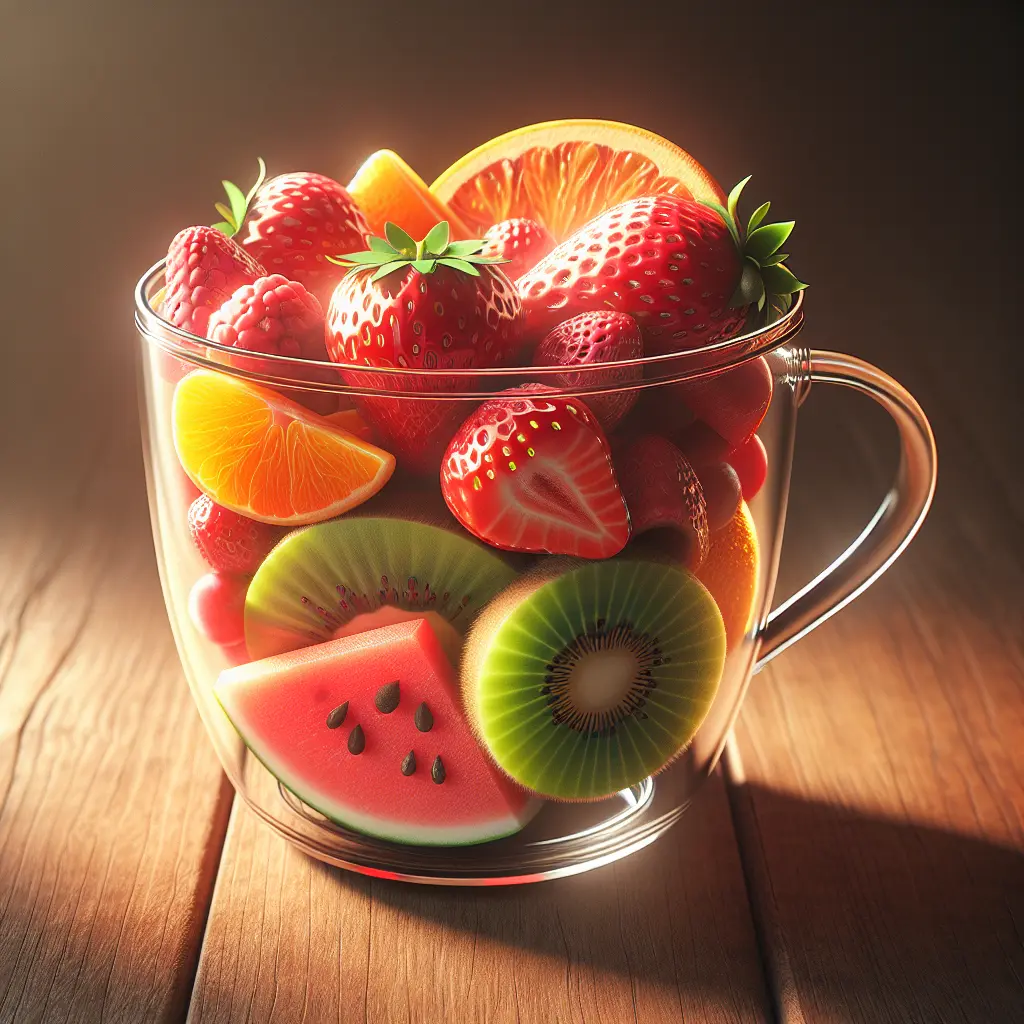Unveiling the Nutritional Profile of Fruits
Fruits are nature's candy, offering an array of vitamins, minerals, antioxidants, and fiber. Let's delve into their nutritional makeup:
- Vitamins: Fruits are a bountiful source of vitamins, including vitamin C, an antioxidant that supports immunity and collagen production; vitamin A, essential for vision and skin health; and folate, crucial for cell growth and development.
- Minerals: Potassium, a mineral that regulates blood pressure and fluid balance, is abundant in fruits. They also provide magnesium, which aids in muscle and nerve function, and iron, necessary for oxygen transport.
- Antioxidants: Fruits are treasure troves of antioxidants, such as flavonoids and anthocyanins, which scavenge harmful free radicals and protect cells from damage.
- Fiber: Dietary fiber, found in fruits, promotes satiety, regulates digestion, and supports a healthy gut microbiome.
The Health Benefits of Fruit Consumption
Incorporating fruits into your daily diet can unlock a wealth of health benefits:
- Reduced risk of chronic diseases: Studies have linked fruit consumption to a lower risk of cardiovascular disease, type 2 diabetes, and certain types of cancer.
- Improved digestion: The fiber in fruits aids in digestion, preventing constipation and promoting regularity.
- Enhanced immunity: The vitamins and antioxidants in fruits bolster the immune system, protecting the body against infections and diseases.
- Healthy skin and hair: The vitamin C and antioxidants in fruits contribute to healthy skin and hair growth by promoting collagen production and protecting against damage.
- Weight management: Fruits are relatively low in calories and high in fiber, making them filling and supportive of weight management goals.
Embracing the Versatility of Fruits
The versatility of fruits knows no bounds. Here's how you can enjoy their nutritional goodness:
- Fresh: Savor fruits in their natural state, as fresh snacks, or incorporate them into salads, smoothies, and yogurt parfaits.
- Frozen: Frozen fruits retain their nutrients and are perfect for smoothies, desserts, and as a refreshing treat on hot days.
- Dried: Dried fruits, while more concentrated in sugar, offer a convenient way to get your fruit fix on the go or as a healthy snack.
- Juices and smoothies: Fruit juices and smoothies can be a quick and easy way to consume fruits, but be mindful of added sugars and opt for freshly made options whenever possible.
By embracing fruits, you unlock a vibrant world of nutrition and flavor. Make them a staple in your diet and experience the transformative power of these nature's gems.
How many calories are in Fruit?
Each 1 cup of Fruit contains 97 calories.
Fruit Nutritional Information
| Nutrient | Amount per 1 cup (162g) |
|---|---|
| Calories | 97 Calories |
| Protein | 1.4g |
| Fat | 0.5g |
| Saturated Fat | 0.1g |
| Cholesterol | 0mg |
| Carbohydrates | 24g |
| Dietary Fiber | 3.3g |
| Sugar | 16g |
| Sodium | 0.0026mg |
| Potassium | 0.3642mg |
| Calcium | 0.026mg |
| Iron | 0.0005mg |
